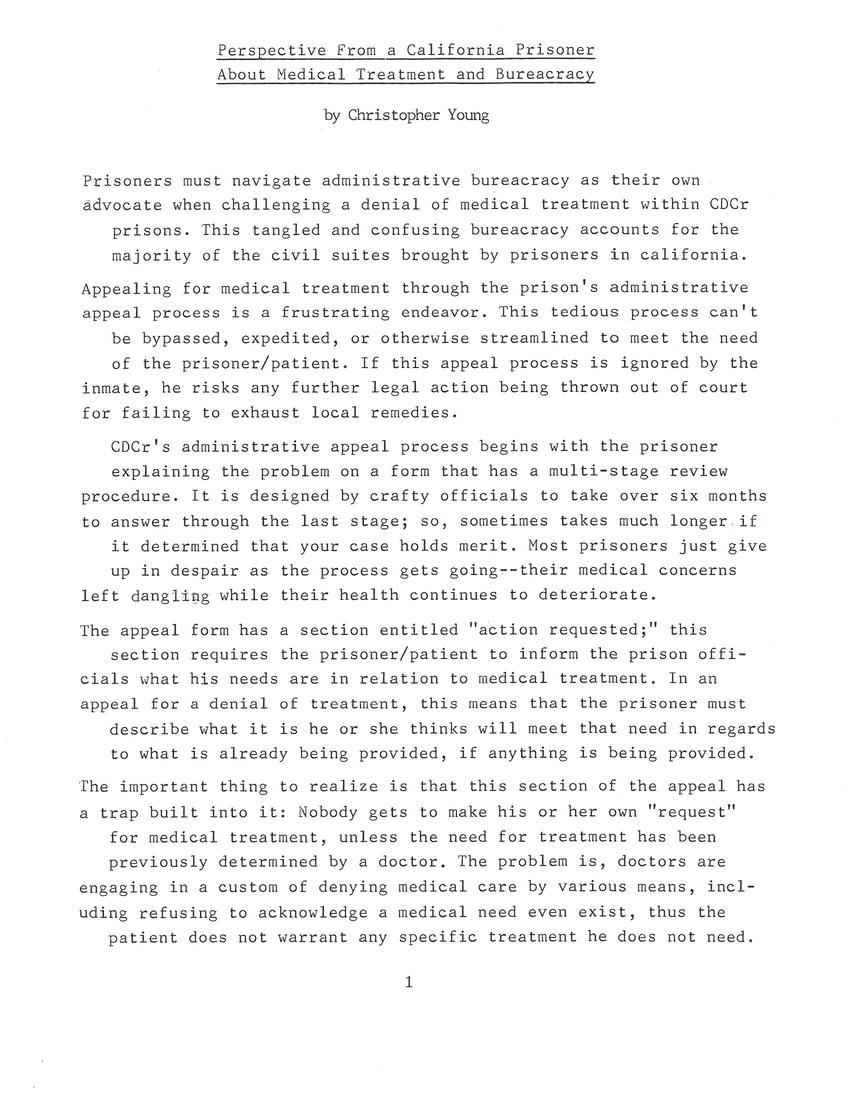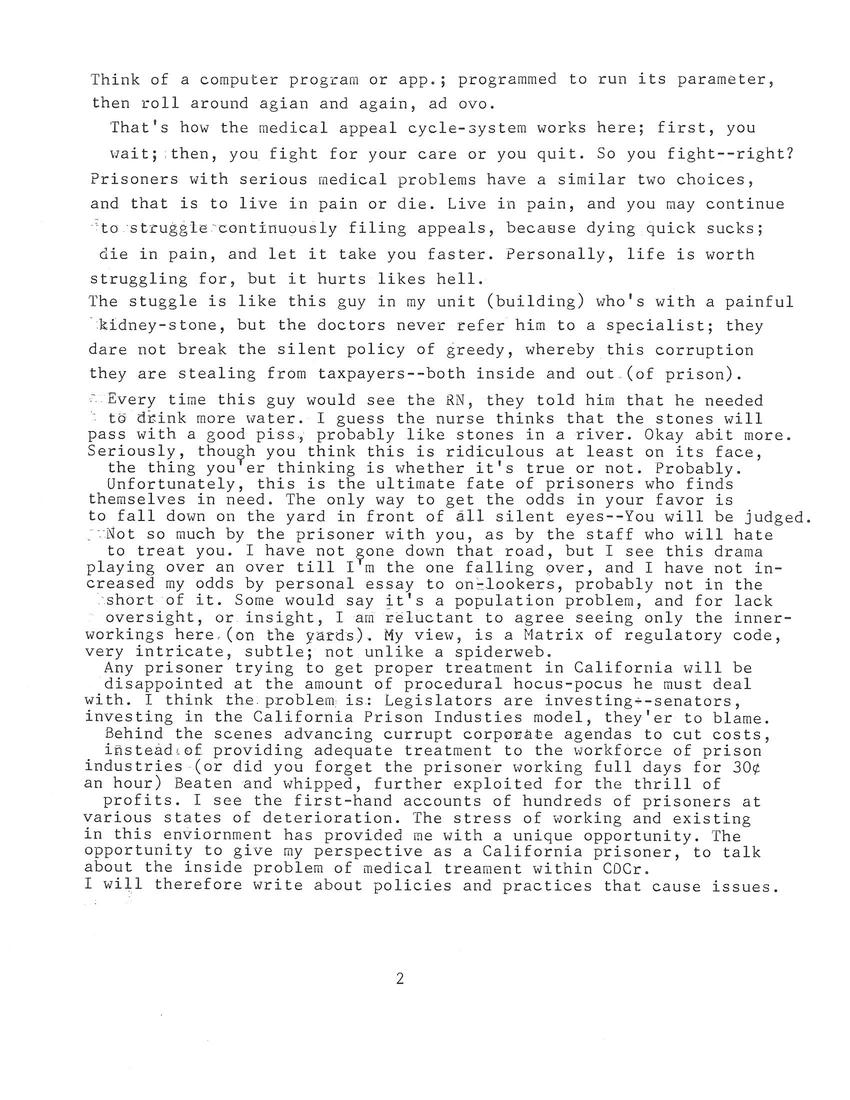
Transcription
Perspective From A California Prisoner About Medical Treatment and Bureaucracy
By Christopher Young
Prisoners must navigate administrative bureaucracy as their own advocate when challenging a denial of medical treatment within CDCR prisons. This tangled and confusing bureaucracy accounts for the majority of the civil suites brought by prisoners in California.
Appealing for medical treatment through the prison's administrative appeal process is a frustrating endeavor. This tedious process can't be bypassed, expedited, or otherwise streamlined to meet the need of the prisoner/patient. If this appeal process is ignored by the inmate, he risks any further legal action being thrown out of court for failing to exhaust local remedies.
CDCR's administrative appeal process begins with the prisoner explaining the problem on a form that has a multi-stage review procedure. It is designed by crafty officials to take over six months to answer through the last stage. So, sometimes, it takes much longer if it is determined that your case holds merit. Most prisoners just give up in despair as the process gets going—their medical concerns left dangling while their health continues to deteriorate.
The appeal form has a section entitled "action requested." This action requires the prisoner/patient to inform the prison officials what his needs are in relation to medical treatment. In an appeal for a denial of treatment, this means that the prisoner must describe what it is he or she thinks will meet that need in regards to what is already being provided, if anything is being provided.
The important thing to realize is that this section of the appeal has a trap built into it: nobody gets his or her own request for medical treatment unless the need for treatment has been previously determined by a doctor. The problem is, doctors are engaging in a custom of denying medical care by various means, including refusing to acknowledge a medical need even exists. Thus the patient does not warrant any specific treatment he does not need.
Think of a computer program or app programmed to run its parameter. Then roll around again and again, ad ovo. That's how the medical appeal cycle system works here. First, you wait. Then you fight for your care or you quit. So you fight—right?
Prisoners with serious medical problems have a similar two choices, and that is to live in pain or die. Live in pain, and you may continue to struggle continuously filing appeals because dying quick sucks. Die in pain, and let it take you faster. Personally, life is worth struggling for, but it hurts like hell.
The struggle is like this guy in my unit (building) who's with a painful kidney stone. But the doctors never refer him to a specialist. They dare not break the silent policy of greed, whereby this corruption, they are stealing from taxpayers—both inside and out of prison.
Every time this guy would see the RN, they told him that he needed to drink more water. I guess the nurse thinks that the stones will pass with a good piss. Probably like stones in a river. Okay, a bit more. Seriously though, you think this is ridiculous—at least on its face. The thing you're thinking is whether it's true or not. Probably.
Unfortunately, this is the ultimate fate of prisoners who find themselves in need. The only way to get the odds in your favor is to fall down on the yard in front of all silent eyes—you will be judged. Not so much by the prisoner with you, as by the staff will hate to treat you. I have not gone down that road, but I see this drama playing over and over till I'm the one falling over. And I have not increased my odds by personal essay to onlookers, probably not in the short of it.
Some would say it's a population problem and, for lack of oversight or insight, I am reluctant to agree seeing only the inner workings here on the yards. My view is a matrix of regulatory code, very intricate—subtle. Not unlike a spider web. Any prisoner trying to get proper treatment in California will be disappointed at the amount of procedural hocus-pocus he must deal with.
I think the problem is legislators are investigating—senators, investigating in the California Prison Industries model, they're to blame.
Behind the scenes, advancing corrupt corporate agendas to cut costs. Instead of providing adequate treatment to the workforce of prison industries (or did you forget the prisoner working full days for 30 cents an hour?), beaten and whipped, further exploited for the thrill of profits. I see the firsthand accounts of hundreds of prisoners at various states of deterioration.
The stress of working and existing in this environment has provided me with a unique opportunity. The opportunity to give my perspective as a California prisoners—to talk about the inside problem of medical treatment within CDCR. I will therefore write about policies and practices that cause issues.
Other posts by this author
|
2017 apr 29

|
2017 jan 4

|
2016 may 18

|
2016 mar 22

|
2016 mar 21

|
2015 may 31

|
More... |



Replies